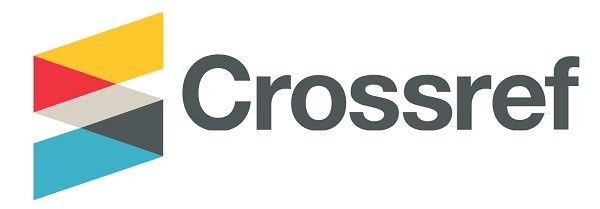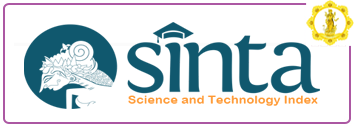PENERAPAN PENILAIAN BERBASIS KINERJA DALAM PEMBELAJARAN PENDIDKAN AGAMA HINDU DAN BUDI PEKERTI KELAS X SMK RESTUMUNING
DOI:
https://doi.org/10.25078/sa.v3i2.2163Keywords:
Performance based assessment, Learning, Hinduism and character educationAbstract
Performance-based assessment is one of the assessment systems that can be carried out by educators to measure the success of students' skills in certain competencies. In this pandemic era where more learning is carried out virtually / via online class, the teacher can design this assessment development as one of the students' assessment systems. This article is written to find out how the application of performance-based assessments in the learning of Hinduism and Character Education Grade X Vocational School. Then analyze the obstacles and analyze efforts that can be done to tackle the obstacles. This research uses qualitative methods. Based on the data analysis obtained, the application of performance-based assessments in the learning of Hinduism and Character Education Grade X Restumuning Vocational School is divided into five stages, namely: a) reviewing syllabus as a reference for implementing assessment planning, b) Developing instruments and setting the criteria of Assessment, c) Implementing Assessment, d) Analyzing the results of the assessment, and e) Prepare the Assessment Report in the form of a description of competency achievement. There are three causing factors that inhibit the application of performance-based assessments in the learning of Hinduism and character education grade x vocational school, namely a) the ability of students in processing information and technology, b) students' motivation, and c) Geogrfis. The efforts made to overcome the obstacles to the implementation of performance assessments in the learning of Hinduism and Character Education of grade X in Restumuning vocational school, namely: a) carrying out individual approaches to students, b) offering solutions according to the problems experienced, c) providing cloud storage space, d) providing guidance and motivates students, e) carrying out team teaching.
References
Ahmad Dahlan 20 juni 2015 pengertian dan prinsip pengembangan silabus. https://eurekapendidikan.com/pengertian-dan-prinsip-prinsip
Amrozi, Tom. 2018. IMPELEMENTASI PROJECT BASED LEARNING UNTUK MENGEMBANGKAN SKILLS DAN BELAJAR SISWA PADA PEMBELAJARAN AGAMA ISLAM (PAI) Jurnal Pendidikan IPS, 1 (2). 178-190.
Badaruddin, A. (2015). Peningkatan Motivasi Belajar Siswa Melalui Konseling Klasikal(1st ed.). CV Abe Kreatifindo.
Effendi, Irfan, dkk. 2021. IMPLEMENTASI PENILAIAN PEMBELAJARAN PADA KURIKULUM 2013 MATA PELAJARAN SEJARAH. Journal of History Education, 1(1).21-25
Rohman, Arif. 2011. Memahami Pendidikan & Ilmu Pendidikan. Yogyakarta: LaksBeng Mediatama
Setiadi, Hary. 2016. PELAKSANAAN PENILAIAN PADA KURIKULUM 2013. Jurnal Penelitian dan Evaluasi Pendidikan, 20 (2). 166-178
Suatra, I Nengah. 2019. PENINGKATAN HASIL BELAJAR PENDIDIKAN AGAMA HINDU DAN BUDI PEKERTI MELALUI PEMBELAJARAN SAINTIFIK BERBASIS PETA KONSEP. Indonesian Journal Of Educational Research and Review, 2 (2). 182-191.
Sugiyono. (2017). Metode Penelitian Kuantitatif, Kualitatif, dan R&D. Alfabeta.
Tim Penyusun. 2018. “Panduan Penilaian Hasil Belajar dan Pengembangan Karakter Pada Sekolah Menengah Kejuruan. Dirjen Pendidikan Dasar dan Menengah Kemendikbud”.
Umar Tirtarahardja dan La Sulo. 1994. Pengantar Pendidikan. Jakarta: Ditjen Pendidikan Tinggi Depdikbud
Downloads
Published
Issue
Section
License
Copyright (c) 2022 Sang Acharya: Jurnal Profesi Guru

This work is licensed under a Creative Commons Attribution-NonCommercial-NoDerivatives 4.0 International License.












